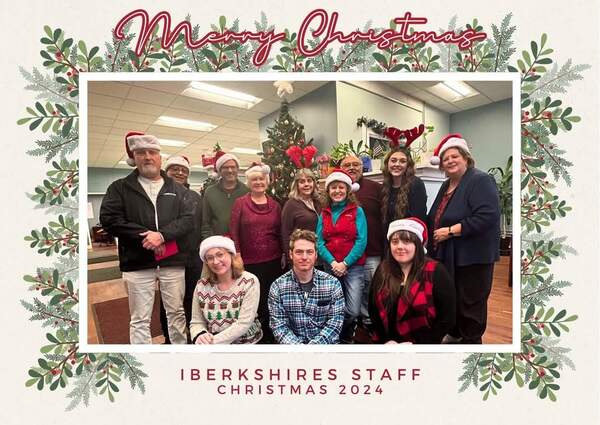
Mayor Bernard Plans Working Group to Tackle Marijuana Regs
NORTH ADAMS, Mass. — One of Mayor Thomas Bernard's first actions will be to institute a working group to develop retail marijuana ordinances.
In his communication to the City Council, the mayor said he expects the working group to meet at least three times during the month of January and provide a draft to the council in February.
"I'm hoping for them to give a first look and an opportunity for public input into a draft ordinance," Bernard said on Thursday. "We've got some technical assistance from Berkshire Regional Planning [Commission] to draft the language of the ordinance."
He anticipated having the names of the working group members by next week's City Council meeting. The about 10 members will include two residents and representatives from city departments and boards: Office of Community Development, Police Department, Health Department, Public Schools, City Council, Planning Board, Zoning Board of Appeals and Board of Health.
Their role would be to develop a draft ordinance, hold a public hearing, make any adjustments based on that feedback and deliver the draft to the administration.
"Basically, that would end the charge to this group, at which point I would have something to bring forward to council with the hope they would refer it to committee and, as with the proposed moratorium at the end of the year, trigger a public hearing for input," he said, with a final vote, hopefully, by the end of March.
The mayor said his expectation is that the ordinance would outline where and when cannabis could be cultivated, processed and sold within the city's existing zoning. The working group would meet Wednesday, Jan. 17, at 6:30 to review materials based on the state's Cannabis Control Commission guidelines; hold a public hearing on Wednesday, Jan. 24, at 6:30; and meet finally on Wednesday, Jan. 31, at 6:30 to review and edit the final proposal.
His approach on fast-tracking the ordinance is in contrast to his predecessor, Mayor Richard Alcombright, who had tried to implement a moratorium to freeze any marijuana applications until an ordinance specific to the city could be delivered in November. The City Council and the Planning Board indicated their opposition to such a move and the moratorium was withdrawn from consideration.
Alcombright has been a vocal advocate on the need to address substance abuse and has been cool to the concept of cannabis sales. A moratorium on medical marijuana he posed in 2013 to study the impacts of a dispensary was also rejected.
Ballot questions legalizing medical and then recreational marijuana in the state passed easily. The 2016 ballot question on legalizing recreational marijuana was passed by every community in the Berkshires, and by 62 percent in North Adams.
The state's Cannabis Control Commission has released draft guidelines for zoning and licensing and surrounding communities have already taken steps to regulate marijuana: Williamstown and Clarksburg passed bylaws last year and Adams expects to vote on its proposed bylaw within weeks. Some communities see the local tax option of up to 3 percent as a way to increase revenues.
However, only about 75 establishments statewide are expected to be authorized. Facilities can begin retail sales in July.
U.S. Attorney General Jeff Sessions on Thursday put the multibillion-industry in jeopardy by saying he would not abide by the Obama administration's hands-off policy in states that had legalized and regulated marijuana, leaving such decisions up to federal prosecutors. The drug is still considered illegal by the federal government and all but eight states and the District of Columbia.
The state's Cannabis Control Commission said in a statement that its role was "to fulfill the will of the voters of Massachusetts by implementing and administering a regulatory process that is safe, equitable and efficient. ... As far as the mandate and the work of the Cannabis Control Commission is concerned, nothing has changed."
Republican Gov. Charlie Baker also said through a spokesman that he opposed Session's action. "The administration believes this is the wrong decision and will review any potential impacts from any policy changes by the local U.S. Attorney's Office," spokesman Brendon Moss told a number of news outlets.
Bernard said the city would continue to follow the state's lead unless something occurred at the federal level to supersede it. Should the federal government interfere, he expected that attorneys general in the affected states would push back.
"We have a law in place, we have a commission that's come out with its draft regulations, and we're going to be following those in consonant with our zoning," the mayor said.
Tags: marijuana, ordinances,















